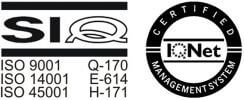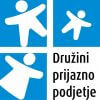Circular economy
Our sustainable and environmentally responsible waste management system solutions are in sync with circular economy principles. A circular economy is a system in which resource input and waste, emission and energy leakage are minimised by slowing, closing, and narrowing material and energy loops. This can be achieved through long-lasting design, maintenance, repair, reuse, remanufacturing, refurbishing, and recycling. This is in contrast to a linear economy which is a 'take, make, dispose' model of production. We are systematically introducing actions and measures for waste prevention (especially including food waste), reuse and repair throughout reuse centres.
Some examples of good practice
Slovenia produces seven tonnes of waste coated multi-ply paperboard used for milk and juice packaging annually. These cartons can be used to make tissue paper. Ljubljana’s public companies, institutions and institutes use the most sustainable tissue paper (paper towels and toilet paper) on the market. It is made of recycled coated multi-ply cartons for milk and juices. All separately collected packaging is handed over to a packaging company that treats it appropriately, then hands it over to a paper manufacturer. This creates a closed loop and closes material flows, creating environmental and financial benefits based on ‘zero waste’ principles.
Ljubljana has been part of the global network for promoting repairs, the so-called Repair Café. Repair Café operates within the Reuse Centre at 4 Povšetova Street: every last Thursday of the month different professionals (electrician, seamstress, carpenter) and volunteers are available to help repair and transform products brought by visitors. In addition to a repair workshop, the Reuse Centre also has a shop. In the four year since its establishment, the number of products sold by the centre increased from an average 50 to an average 190 a day.
In RCERO Ljubljana, we extend the lifetime of products and materials through creative reuse and upcycling. Trash Design collective has used over 500 pallet boards, and renovated and given new life to sixteen chairs, seven desk lamps, over twenty bicycle wheels, five bath tubs, a wardrobe, eight chests of drawers and four stainless steel barrels, and has transformed 100 beer and wine bottles, over 400 paper tubes, and 70 metres of worn-out construction beams to make part of new products.
In 2017 Ljubljana has stopped using herbicides on public green and road surfaces. The machine used for controlling weeds uses stream, biologically degradable active vegetable-oil substances (from coconut, palm and oil seed rape oil) and glucose (from potato, corn and wheat).
JP VOKA SNAGA cleans the streets of Ljubljana using machines that recycle water and use biologically degradable detergent. The wet-cleaning sweepers use five brooms to clean the streets and suck back all the water used. For flushing streets we mostly uses rainwater collected from the roofs of JP VOKA SNAGA facilities in Barje.
Japanese knotweed (Fallopia japonica) is an invasive foreign species of plant, which spreads aggressively and can grow in different soils. It is harmful to the environment, as it spreads quickly and destroys local vegetation, while its invasive root system and strong growth can damage infrastructure and cause economic damage. In Ljubljana, we found a solution how to exploit the unwanted invasive species in order to prevent its overgrowth. The City of Ljubljana teamed up with REGENERACIJA society, Botanical Gardens of the University of Ljubljana, Pulp and Paper Institute and Snaga to make practical use of the plant. In voluntary Japanese knotweed removal campaigns, the dry stems of the plant were harvested, ground and processed into paper from which final products were made. Ljubljana has thus become of the first in the world to produce paper out of Japanese knotweed at a semi-industrial level.
Invasive alien plant species are one of the globally growing challenges: displacing local species, damaging ecosystems, destroying agricultural land and harming local economy. Many of them are removed daily from public or private properties and as in Slovenia there are no special landfills for invasive alien plant species, nowadays all collected biomass is taken to incinerators and treated linearly. Through the project activities it will be demonstrated that IAPS may be approached in more circular manner.
Ljubljana, the first Zero Waste capital in Europe, recognized the potential of setting up a systematic participatory model which uses collected biomass to develop new sustainable products, promote eco design, lower classical resource use and reduce waste production.
With the project APPLAUSE and by developing circular production processes Ljubljana started focusing on controlling the population of invasive alien plants and increasing the resilience of local economies and ecologies. The project is an on-going and interdisciplinary process, bringing together scientists, specialists from different work fields and most importantly citizens of Ljubljana, who will be made aware of how to identify, collect and process invasive alien plants.
Project’s benefits are numerous – from developing new, greener and nonconventional processes and techniques using invasive alien plants as raw material for wood and paper production and creating high value products from this materials, to using plants for food, dyes and home-made formulations against plant harmful organisms. And most of all, a comprehensive set of actions ranging from investment, education, research, environmental improvement, social inclusion will be integrated in a new sustainable business model that will be systematically developed as a ready-to-use "black box" solution also for other cities.
This project is co-financed by the European Regional Development Fund through the Urban Innovative Actions Initiative. More about the project at the project's website.


